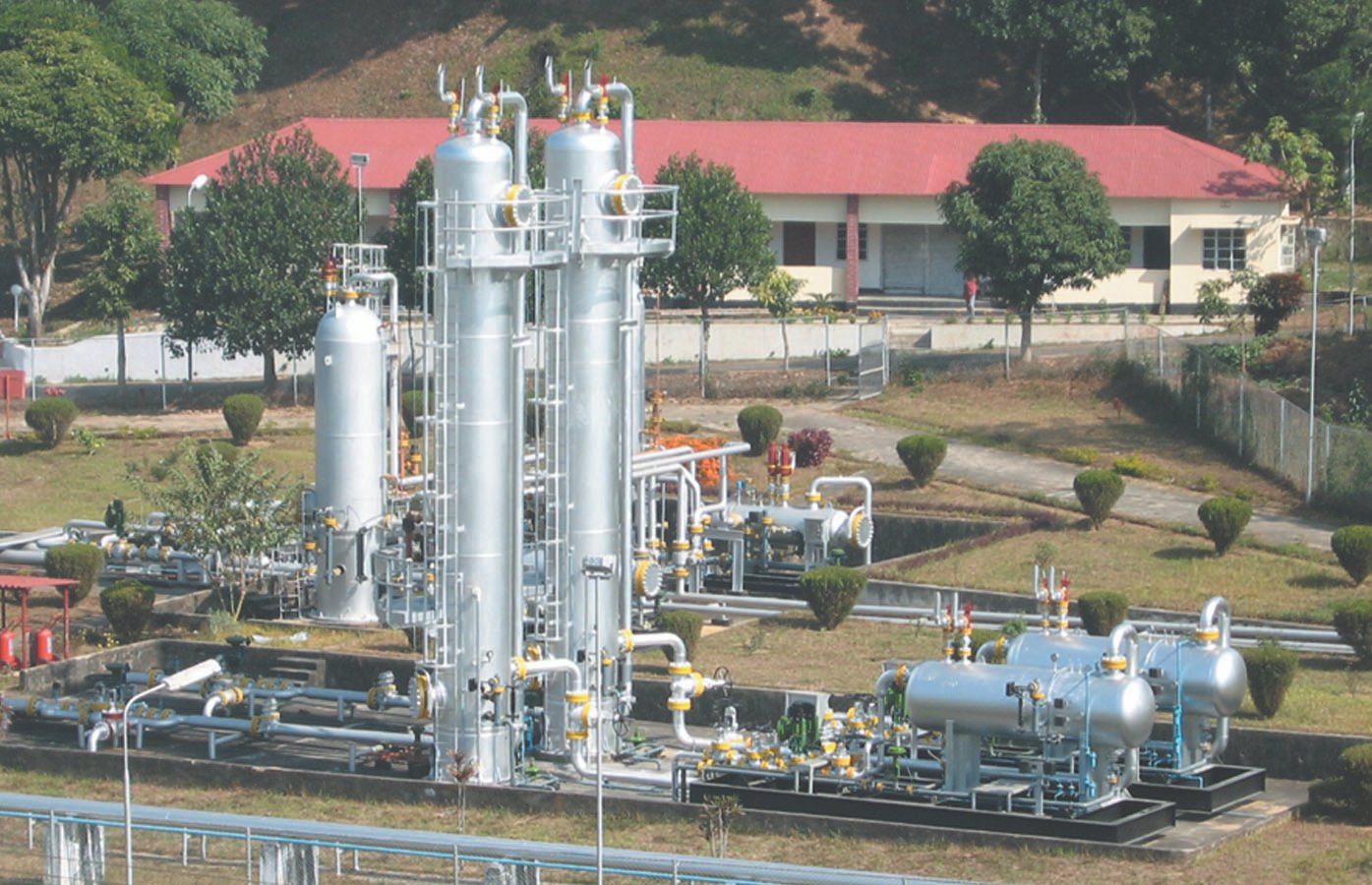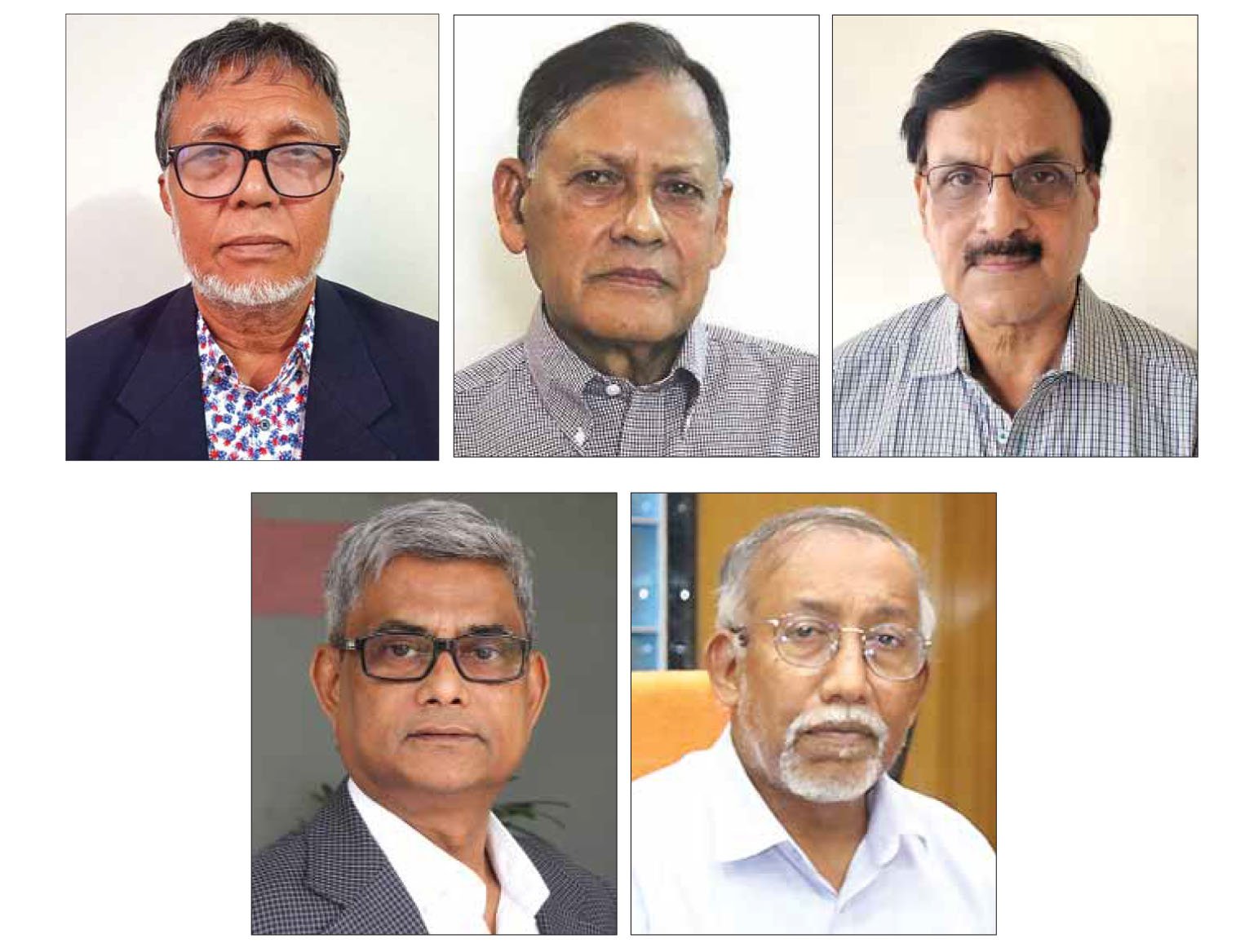
Experts have urged the authorities concerned to intensify hydrocarbon exploration in the local sources to reduce over-dependency on imported fuel and address the country’s energy crisis.
“There is no alternative to explore and extract more gas from local resources for reducing fuel import,” Khondkar Saleque Sufi, an international energy expert based in Queensland, told a webinar.
Bangladesh has long been facing a severe shortage of primary energy, especially natural gas, and increasingly becoming dependent on imports, putting extensive pressure on the foreign exchange reserves.
Mr. Sufi, former director of the Gas Transmission Company Limited (GTCL), highlighted the crisis and showed the possible way out measures at an EP Special Webinar titled “Enhancing Gas Supplies: Exploration & Development of Domestic Sources”, recently organized by Energy & Power magazine.
He presented a keynote paper with a focus on the importance of exploration of local gas fields to face the situation.
Former Directors of Petrobangla Engr. Md Quamruzzaman and Engr. Ali Iqbal Md Nurullah, former Managing Director at Bangladesh Petroleum Exploration and Production Company (BAPEX) Geologist Murtaza Ahmed Faruk Chisti, and former Vice-President of Ocean Energy M Fariduddin were the distinguished panelists of the webinar, hosted by Energy & Power Editor Mollah Amzad Hossain.

In his keynote presentation, Mr. Sufi identified a lack of proper planning, the poor vision of policymakers, and the failures of bureaucrat-dependent Petrobangla as the reasons for the failure of offshore exploration.
Sufi further mentioned that the BAPEX-only policy for onshore exploration for almost two decades and not strengthening the state-owned enterprise properly with competent manpower and adequate resources have led to successes that are considered to be well below the desired level.
Consequently, from almost exclusive dependency on its natural gas, Bangladesh’s reliance on imported energy – coal, LNG, power, and liquid fuel – has gradually reached around 50 percent now, according to the presentation.
The grid-connected power generation capacity is now 27,820MW, but the power system cannot consistently generate more than 15,000MW mainly due to fuel shortage.
Some 12,413MW gas-based power generation capacity requires 2,420 MMCFD gas. From the existing 3,000 MMCFD gas supply capacity (1900 MMCFD own gas and 1100 MMCFD imported RLNG), Petrobangla can supply a maximum of 1,100-1,200 MMCFD for power generation.
“This short supply limits power generation to a maximum of 6,000MW, leaving almost half of the generation capacity remaining unused,” Mr. Sufi said.
The keynote also analyzed the prospects of potential gas resources in onshore areas as assessed in 3-4 studies conducted by international agencies in collaboration with Bangladesh counterparts. USGS-Petrobangla, Norwegian Agency-HCU, Halliburton Group, and Schlumberger reports were referenced. Mr. Sufi mentioned that only one-third of the country’s land surface has been explored. There may be less success in the remaining two-thirds areas but there is no point leaving vast land surface unexplored.
Mr. Fariduddin supplemented that some areas in greater Chottogram like Patiya, Jholdi, and Sitapahar have great prospects of discovering gas and even oil. Exploring these blocks will be extremely useful as the evacuation of gas from discovered fields will be easy.
According to the paper, there are about 48 exploration blocks in Bangladesh territory – 22 onshore, 11 in shallow water (near coastal areas), and 15 in offshore deep waters. Of the 28 gas fields, 113 wells in 20 fields are in operation. There is an under-implementation and another planned exploration and development project of BAPEX /Petrobangla.
“Some wells will be drilled by BAPEX using its rigs, a second group of wells will be drilled by hiring rigs with manpower and crew under BAPEX management, and for the third group the state-owned company will let out tenders for engaging contractor,” says the presentation.
Mr. Sufi mentioned that BAPEX and Petrobangla identified 69 locations from the 2D and 3D seismic surveys and identified leads and prospects, 31 other wells will be development wells or work over.
“Despite very dismal track records of exploration in Bangladesh, natural gas remains the preferred fuel for power generation and industrial use. For a lack of proper planning, poor vision of policymakers, and failures of bureaucrat-dependent Petrobangla, there has been virtually no success in offshore exploration,” he added.
He also pointed out that the BAPEX-only policy for onshore exploration for almost two decades has led to some successes but that were well below the desired level.
Addressing the webinar, Engr, Mohammad Quamruzzaman, said that there is no immediate possibility to come out of the existing energy crisis. “We must think about mid-term policy for the next one and half years to improve the situation.” There are some initiatives for importing LNG by setting up FSRUs. The tender process and implementation of the initiative may take 3-4 years, he mentioned, adding that the government is now focusing on FSRU to promote low-cost gas import.
This may give temporary relief. Over the long term, there is no alternative to exploring gas in the Bay of Bengal to address the challenges in the long term. “We wasted 5 years for a multi-sector survey that usually takes 6 months. Surprisingly, the foreign bidders didn’t come for exploration amid the political situation of the country,” he observed.
Engr. Ali Iqbal Md Nurullah emphasized drilling the deeper horizon to explore more gas from local resources. “There is a potential for a good reserve at 7,000-meter depth in Sylhet gas field. However, we keep exploring up to 4,000 meters. For getting maximum resources from limited land onshore, we have to focus on deep drilling,” he said. Mr. Nurullah also suggested engaging qualified and competent technical resources as chief executive officers of respective offices in the energy sector irrespective of political affiliation.
He suggested using co-generation and tri-generation in industries to reduce pressure on natural gas.
Mr Murtaza Ahmed Faruk Chisti identified problems of planning in the energy sector as well as the exploration of natural gas over the decades. “There are hardly any industry-grown experts at the decision-making level in Petrobangla. Four directors are posted from the ministry. There is a lack of experienced people on the BAPEX board as well. How can we plan for a sustainable future? We have been advocating for a long time to appoint experienced people in the board of the state-owned energy companies to get better outcomes,” he said, adding that continuous development of new wells is a routine job as the reserves of natural gas are decreasing over the years.
Mr. Fariduddin expressed deep concern over the possible power generation situation in the ensuing summer amid the chronic shortage of gas supply.
“We have 20 gas fields and 2 FSRUs producing 2800 MMCFD against the demand of 4000 MMCFD. There is a deficit of 1200 MMCFD. We are not feeling the depth of crisis in winter but it will expose in the summer,” he said.
He criticized the BAPEX’s selection of less-prospective sites as the drilling location rather than concentrating on highly potential Chattogram Hill Tact areas. He assured that if explored at Sitapahar, Jholdi, Kasalong, and Patiya, a significant volume of gas may be discovered in less than 2 years. He also expressed frustration that these blocks have been taken away from BAPEX. He thought, in the prevailing situation, competent international contractors may not be interested in bidding in response to Petrobangla's invitation. Hence such potential resources may remain unexplored for an uncertain period.
“The solution will take more time. We need to engage the right people in the right places. Unfortunately, there is no expert on the board of directors of state-owned companies. We talk about 50 wells within 3 years. That is a very difficult task if not impossible to implement,” added Mr. Fariduddin.
Mr. Sufi, in his concluding remarks, suggested giving topmost priorities to the BAPEX’s drilling projects. He suggested expeditious approvals of DPPs, special provisions for land acquisition, and approval of procurement and services. He also suggested that BAPEX should preferably concentrate on development wells and workover of gas wells in BGFCL, SGFL, and BAPEX’s under-operation fields. This will facilitate quick evacuation of gas. He also agreed with Mr. Fariduddin that BAPEX must mobilize rigs at high-prospect CHT areas and explore them on a priority basis. He mentioned that India has achieved success in the adjacent Tripura region.
In his remarks, EP Editor Mollah Amzad Hossain mentioned that industries and power generation have been facing severe crises due to a shortage of gas although natural gas has been the main driving force of Bangladesh’s economy.
“The gas supply is now 3000 million cubic feet per day against the demand for over 4000 MMCFD. Every year the demand increases by 10 percent as per different estimates,” he said.
“In the current context, Bangladesh can import a maximum of 1100 MMCFD of LNG while the foreign investors didn’t show any interest in the offshore bidding. Besides, a foreign consultant, Wood & Mckenzie has been appointed to update model PSC for offshore exploration. They will hopefully submit their recommendation within next month (February),” he said.
Petrobangla undertook a project for the exploration of 50 wells three years ago and has so far implemented 16 wells. There is another plan to explore 100 wells by 2028.
More than three dozen gas-fired power plants remain idle as the state-run Petrobangla is supplying only around 802 MMCFD of natural gas to the power plants against their demand for 2,420 MMCFD.
Speakers agreed that adopting and executing appropriate plans for exploring and exploiting our petroleum resources must be the top national objective now for achieving sustainable energy security. Petrobangla and its companies must engage qualified and competent technical resources and provide them with the right compensation for retaining them. Bangladesh's economy cannot sustain the financial stress of importing primary fuel from the volatile global market.
Download EP Special As PDF/userfiles/EP_22_16_EP_Special.pdf





